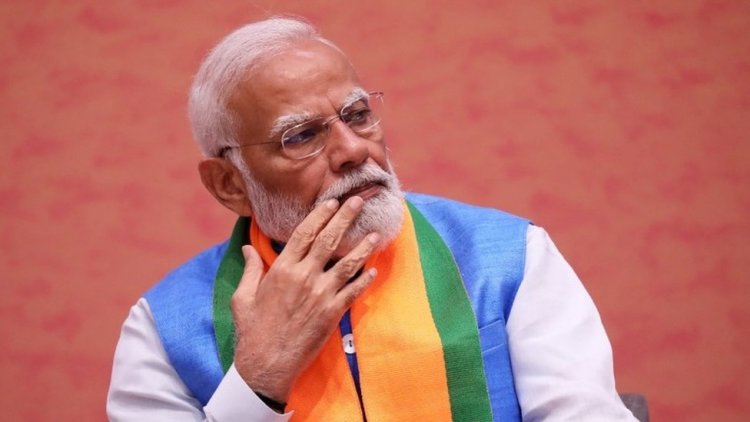India - China: Blaming Modi’s Electioneering for Fanning Anti-China Mood
STORIES, ANALYSES, EXPERT VIEWS

India’s Lok Sabha election is expectedly attracting serious media and official attention in China. Discussions in think tanks and on state-owned news platforms and social media show Beijing has its eyes trained on New Delhi’s election proceedings.
The Modi administration’s emphasis on resolving the border dispute with China, in the view of Sana Hashmi (fellow at the Taiwan Asia Exchange Foundation and George H W Bush Foundation for US-China Relations) “contrasts sharply with Beijing’s approach of relegating it to the background. China has employed the border dispute and standoffs as leverage against India while simultaneously urging the nation to prioritise other aspects of bilateral ties. This disparity in focus raises apprehensions in China about the trajectory of future relations under (a potentially re-elected) Modi government.”
Coinciding with Indian elections, Ku Feihong recently assumed the position of China’s Ambassador to India following a year and a half vacancy.
Chinese media has adopted a hawkish stance on India and its elections
Hashmi notes state-owned English news portals such as the Global Times have adopted a hawkish stance on India and its elections. The Chinese media house suggests the Modi-led BJP is fanning anti-China sentiments to gain votes. Global Times has published several editorial and opinion articles attributing the deterioration in India-China relations to government rhetoric aimed at securing votes. It has criticised Indian media for allegedly aligning their narrative with the Modi administration’s China policy and creating an unfavourable perception of the country.
Relatively moderate perspectives
Some Chinese scholars and analysts however, offer relatively moderate perspectives that deviate from mainstream media narratives. Zhang Jiadong from Fudan University acknowledged India’s strides in economic development and social governance. He also recognised the country’s realisation of its great power status.
On Hindu nationalism
However, Liu Zongyi, director of the Center for South Asia Studies at the Shanghai Institute of International Studies, posits that Hindu nationalism is steadily gaining prominence among the majority of people in India, which is also affecting voting patterns.
Another commentary said that India’s young Hindu voters perceive Modi as a deity-like figure and firmly believe that he alone can guide the nation toward prosperity and elevate the country’s global status beyond China and the United States. Additionally, it highlights the deep-rooted perception of a China threat within India, which contributes to New Delhi’s lack of cooperation and outreach toward Beijing. Long Xingchun from the Chongyang Institute for Financial Studies of Renmin University argued in a past commentary that the combination of Sinophobia and Indian nationalism is detrimental to India-China relations.
Similar views were shared by Ning Shengnan of the China Institute of International Relations, who said Modi vigorously promoted Hindu nationalism during his two terms. She, however, also praised the Indian PM as a strong leader, stressing that his governance style changed his country’s ‘weak’ image. She further said that if India wants to truly focus on its development after the elections, it needs a peaceful external environment sans conflict with China.
China will remain a key priority for India
However, there is consensus that China will remain a key priority for India after the 2024 Lok Sabha election. At least the Chinese scholarly discourse primarily leans toward optimism, offering several recommendations for shaping the future of India-China relations.
A broader understanding of India in China, concludes Hashmi “however, appears largely misconstrued. While the border dispute has influenced some Indians’ perceptions, it has not yet emerged as a decisive factor in the country’s election. Uncertainty looms over whether the hardline approach toward China will persist or if there will be room for reconciliation.”
















